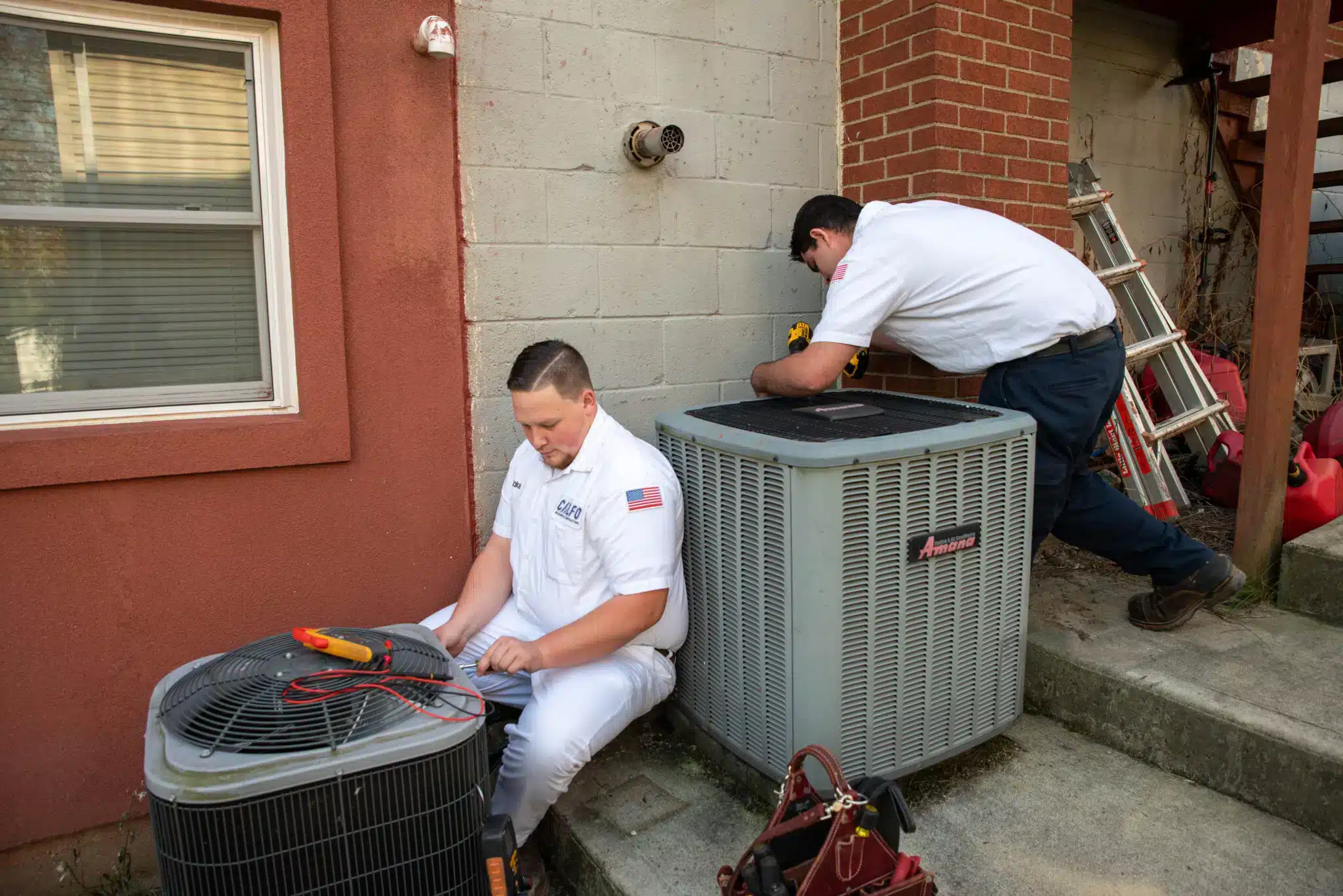How do i stop my ac from short cycling – When your AC unit starts short cycling, it can be a frustrating and uncomfortable experience. Short cycling refers to the AC system turning on and off too frequently, which can lead to inefficient cooling, increased energy consumption, and premature wear on the unit.
In this comprehensive guide, we’ll explore the common causes of short cycling and provide step-by-step instructions on how to troubleshoot and resolve the issue.
Short cycling can be caused by a variety of factors, including refrigerant leaks, dirty coils, faulty components, electrical issues, and incorrect system settings. By understanding the underlying causes and following the troubleshooting steps Artikeld in this guide, you can effectively stop your AC from short cycling and restore its optimal performance.
Troubleshooting Common Causes
Short cycling can be a frustrating problem, but it’s often caused by a few common issues. By troubleshooting these potential causes, you can get your AC unit running smoothly again in no time.
Here are some of the most common causes of short cycling and how to address them:
Refrigerant Leaks
- Refrigerant leaks can cause a drop in pressure, which can lead to short cycling.
- Check for refrigerant leaks by looking for signs of oil or refrigerant on the coils or lines.
- If you find a leak, you will need to have it repaired by a qualified technician.
Dirty Coils
- Dirty coils can restrict airflow, which can cause the AC unit to overheat and short cycle.
- Clean the coils by using a soft brush or a vacuum cleaner with a soft brush attachment.
- Be careful not to damage the coils.
Faulty Components
- Faulty components, such as the compressor or capacitor, can also cause short cycling.
- If you suspect a faulty component, you will need to have it diagnosed and repaired by a qualified technician.
Optimizing System Performance
Proper refrigerant charge and airflow are crucial for efficient AC operation. Incorrect refrigerant levels can lead to short cycling and reduced cooling capacity.
Checking and Adjusting Refrigerant Levels
Use a refrigerant gauge manifold to check the pressure readings. Compare the readings to the manufacturer’s specifications. If the levels are low, add refrigerant gradually while monitoring the pressure. Overcharging can cause damage to the compressor.
Optimizing Airflow
Ensure unobstructed airflow through the condenser and evaporator coils. Clean or replace dirty filters, remove any debris blocking the coils, and check for any airflow restrictions in the ductwork. Proper airflow helps dissipate heat efficiently and prevents the system from overheating.
Identifying Electrical Issues
Electrical faults can cause AC units to short cycle. To identify these issues, you’ll need to inspect the electrical components of your system.
Start by checking the connections at the condenser and evaporator coils. Loose connections can cause power surges that lead to short cycling. Tighten any loose wires and ensure all connections are secure.
Wiring Faults
Wiring faults can also cause electrical issues. Look for any damaged or frayed wires. If you find any, replace them immediately. You should also check the insulation around the wires. If it’s cracked or damaged, it could be causing a short circuit.
Capacitor Issues
Capacitors are electrical components that store energy and help the AC unit run smoothly. A faulty capacitor can cause the AC unit to short cycle. To check the capacitor, use a multimeter to measure its capacitance. If it’s not within the manufacturer’s specifications, replace it.
If you’re dealing with excess water in your basement, you’ll want to know how long a sump pump should run per cycle to keep your space dry. On the other hand, if you’re an avid cyclist, you might be curious about how many miles a bike chain lasts before it needs to be replaced.
Both pieces of information can help you maintain your home and your bike in tip-top shape.
Contactor Problems, How do i stop my ac from short cycling
Contactors are electrical switches that turn the AC unit on and off. A faulty contactor can cause the AC unit to short cycle. To check the contactor, use a multimeter to measure the voltage across its terminals. If it’s not within the manufacturer’s specifications, replace the contactor.
Resetting and Recalibrating the System
Resetting and recalibrating your AC system can help resolve short cycling issues by restoring its optimal settings.
Resetting the AC System
To reset the AC system, locate the circuit breaker or fuse associated with the unit and turn it off. Wait for a few minutes and then turn it back on. This will reset the system’s electrical components and clear any temporary glitches.
Wondering how long your sump pump should run per cycle? Check out this guide to find out the optimal runtime and keep your basement dry. Also, if you’re a cyclist, you may be curious about the lifespan of your bike chain.
This article provides insights into how many miles you can expect your chain to last and tips for prolonging its life.
Maintaining the System Regularly

Regular maintenance is crucial for preventing short cycling and ensuring the longevity of your AC system. Here’s a comprehensive checklist to help you keep your system running smoothly:
Cleaning Coils
Dirty coils can restrict airflow and cause the system to overheat, leading to short cycling. Clean the condenser and evaporator coils at least once a year using a soft brush or vacuum cleaner.
Changing Filters
Clogged filters can also restrict airflow and reduce the system’s efficiency. Change your air filter every 1-3 months, or more frequently if you have pets or live in a dusty area.
Inspecting Components
Regularly inspect the system’s components, including the compressor, capacitor, and refrigerant lines. Look for any signs of damage, corrosion, or leaks. Early detection of issues can prevent more serious problems and short cycling.
Considering Professional Assistance

Seeking professional assistance for AC short cycling issues is advisable when troubleshooting efforts prove unsuccessful or the problem persists despite implementing the aforementioned solutions. A qualified technician possesses the expertise to accurately diagnose the underlying cause, ensuring proper repair and restoration of the system’s functionality.
By engaging a professional, homeowners can benefit from:
- Expert Diagnosis:Technicians utilize specialized tools and knowledge to pinpoint the root cause of short cycling, eliminating guesswork and ensuring targeted repairs.
- Proper Repairs:With access to genuine parts and advanced techniques, technicians can effectively repair or replace faulty components, restoring the AC system to optimal performance.
- Prevention of Further Damage:Unresolved short cycling can lead to premature component failure and costly repairs. Professional intervention can prevent these issues by addressing the problem promptly.
Closure: How Do I Stop My Ac From Short Cycling

By following the troubleshooting steps Artikeld in this guide, you can effectively diagnose and resolve the underlying causes of short cycling in your AC system. Regular maintenance and professional assistance can also help prevent future issues and ensure the longevity of your AC unit.
Remember, a properly functioning AC system not only provides comfortable cooling but also contributes to energy efficiency and cost savings.
User Queries
What are the signs of AC short cycling?
Common signs of AC short cycling include the AC unit turning on and off frequently, inefficient cooling, increased energy consumption, and premature wear on the unit.
What are the common causes of AC short cycling?
Short cycling can be caused by refrigerant leaks, dirty coils, faulty components, electrical issues, and incorrect system settings.
How can I troubleshoot AC short cycling?
To troubleshoot AC short cycling, check for refrigerant leaks, clean the coils, inspect for faulty components, and verify the electrical connections and system settings.
When should I call a professional for AC short cycling?
If you are unable to resolve the short cycling issue on your own, or if the problem persists, it is recommended to call a qualified HVAC technician for diagnosis and repair.
